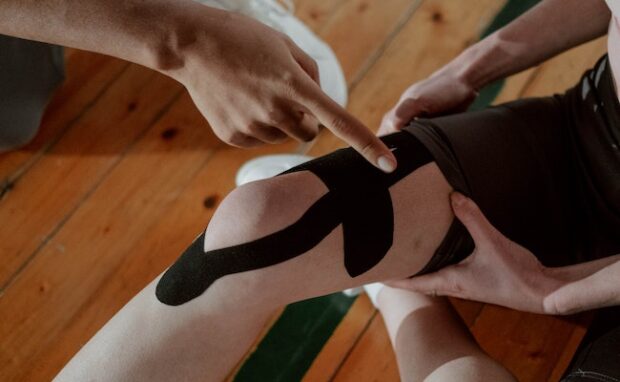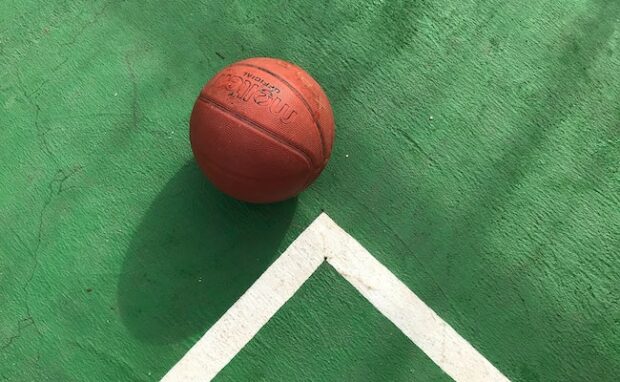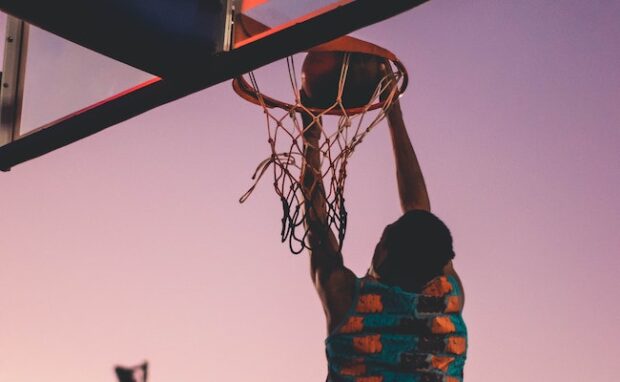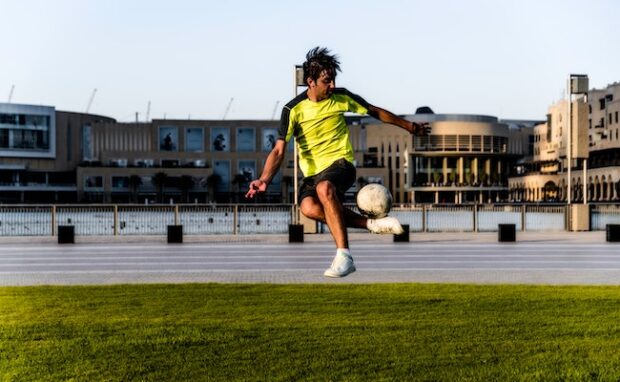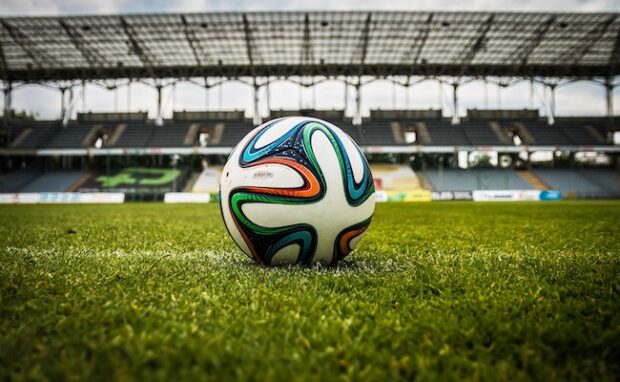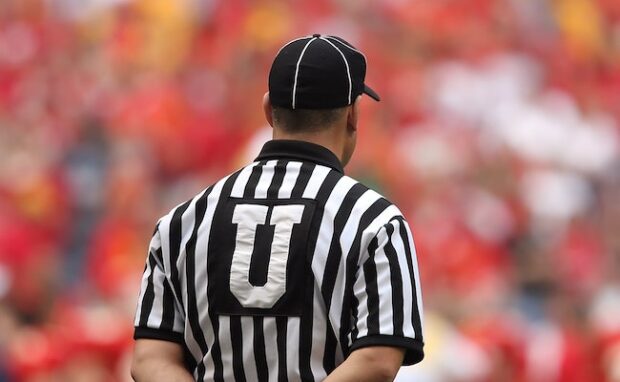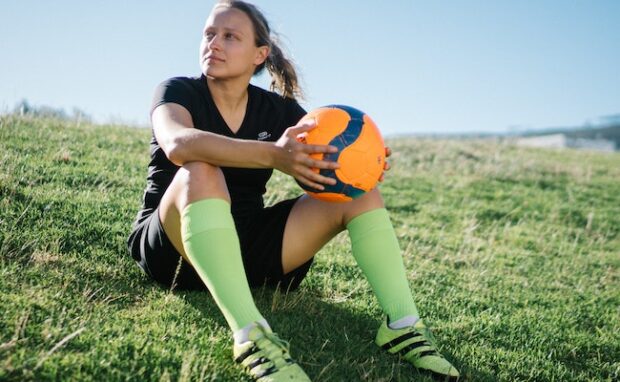Why AI is the latest game-changer for sports
You may have never thought about merging artificial intelligence with sports. However, it is becoming more ubiquitous in more ball games worldwide. Allied Market Research says global artificial intelligence was valued at $1.4 billion in 2020. In 2030, the research group says AI may skyrocket to $19.2 billion 2030.
Believe it or not, your favorite sports leagues already use artificial intelligence. For example, the National Basketball Association (NBA) uses AI to find new recruits easier. More importantly, companies are integrating AI applications into consumer sports equipment. You might already be using AI sports features daily without knowing!
This article will discuss modern AI sports applications, such as improving player performance and preventing injuries. Artificial intelligence is rapidly improving at the time of writing, so many of these features may have changed as you read this article.
The 10 AI sports applications
- Monitoring health and performance
- Preventing injuries and promoting safety
- Innovating sports journalism
- Analyzing game footage
- Crafting tailor-made training programs
- Adding features to sports equipment
- Improving sports fan experiences
- Officiating games more accurately
- Improving media management
- Facilitating scouting and recruitment
1. Monitoring health and performance
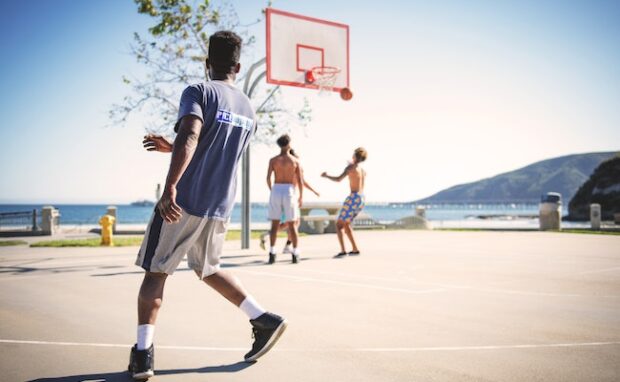
If you’re not familiar with artificial intelligence, you may think AI sports applications think like humans. However, it only helps detect patterns and predict specific outcomes based on massive amounts of data.
Most ignore the stats flashing on their screens as they watch their favorite teams, but those numbers are important. They enable sports analytics to perform essential team tasks.
For example, it can evaluate a player’s injury history to anticipate when they will likely get injured. An AI sports algorithm may also detect performance dips.
You may also like: Capture perfect basketball moments with vivo V29 5G
Conversely, it can identify when a player might experience a breakout season. As a result, managers and coaches can plan games and player rotations more effectively.
2. Preventing injuries and promoting safety
Sports push people’s physical prowess to the limits, so injuries are inevitable. Still, we should minimize their likelihood so players may continue pursuing their careers.
Many leagues have the same goal, so they turned to artificial intelligence to monitor player health. For example, the Chicago Cubs baseball team uses AI to monitor player fatigue levels.
Its advanced system lets the team anticipate potential injuries. Moreover, the World Rugby Association announced it will integrate smart mouthguard technology into its Head Injury Assessment.
In other words, it will require players to wear AI-powered mouthguards to detect potential brain injuries. “The advances in smart mouthguard technology mean elite players will be better cared for than ever before,” said World Rugby Chief Medical Officer Dr. Eanna Falvey.
3. Innovating sports journalism
Generative AI caught the world’s attention as ChatGPT amazed with its uncanny ability to write any text. This technology has progressed beyond words and now produces videos, images, and voices.
Nowadays, generative AI enables comprehensive coverage and in-depth analyses of matches. Moreover, artificial intelligence company Veritone says its AI helps journalists cover highlights and updates.
The Philippines took this AI sports application to the next level when the Global Media Arts (GMA) network unveiled its AI sportscasters. NMI Studios Head of Creatives Ramil Escarda explained, “It doesn’t replace human ingenuity; instead, it amplifies it, making our storytelling more powerful and accessible.”
4. Analyzing game footage
The naked eye often misses important details and patterns in sports matches. Fortunately, artificial intelligence can help catch those details to give teams a competitive edge.
An AI sports algorithm may track players or objects on the field. Then, it can compile that data to provide further understanding of player movement dynamics and the overall game flow.
It turns raw game footage into an abundant source of insights, helping coaches make smarter decisions so that teams achieve better game outcomes.
5. Crafting tailor-made training programs
You can download several apps that can help you improve your physical exercises. Similarly, modern athletes leverage cutting-edge AI sports applications to achieve the following:
- Enhanced performance: AI software can guide athletes toward meeting specific needs to achieve remarkable performance improvements.
- Speedy recovery: Artificial intelligence can optimize rest and recovery periods to help athletes return to the game sooner.
- Reduced injury risk: App company Appinventiv said AI programs could remind players to follow proper form and limit overexertion to avoid injuries.
You don’t even have to be an athlete to benefit from these innovations. Nowadays, you can download fitness apps that can provide personalized training programs.
6. Adding features to sports equipment
Sports equipment is also gaining new AI features. For example, the Official Match Ball of the 2022 FIFA World Cup has an AI ball-tracking sensor to help match officials monitor games.
Custom app company Imaginovation says AI’s influence extends beyond mainstream sports. Here are some of the other applications it mentioned:
- Golf clubs: AI clubs have sensors that monitor a user’s swing. Then, it uses that data to adjust the swing weight, optimizing user experience.
- Running shoes: Innovative AI running shoes adapt cushioning according to user fatigue to ensure optimal support and comfort throughout a run.
- Bicycle: AI bikes use GPS and traffic data to map the most efficient route. Also, Strava and similar apps track your daily laps.
7. Improving sports fan experiences
Sports are best viewed live and are a great way to see the latest artificial intelligence applications. For example, stadiums use AI-assisted face recognition to match faces with ticket information.
That enables the system to help people find their seats. Also, artificial intelligence systems may help manage fan movement in a stadium, improving traffic flow.
You may also like: Kai Sotto inspires Filipinos by sharing his passions with Smart
Modern ticketing websites use AI chatbots to identify fan interest in specific products and services to offer personalized discounts. Moreover, AI can match faces with license plates to help fans find parking spaces.
8. Officiating games more accurately
I mentioned earlier that some sports, like soccer, integrate AI into their balls to improve tracking. At the time of writing, AI sports algorithms cannot take over referees and other officials.
However, experts say AI could replace them in 30 years. Aldo Comi, chief executive of leading global football analytics provider Soccerment, said, “The amount of data that is tagged and the quality of the models that are trained with that data will increase exponentially.
“Thanks to that, you will have AI models that can make refereeing decisions on the back of what they see on the pitch. “So we might get to the point where we don’t need a referee at all,” he added.
9. Improving media management
Sports intelligence firm Sportcal says artificial intelligence can improve how brands manage and use content. First, they can use this technology to manage legacy content.
They can deploy an AI-powered digital archive to help fans find past game footage. Second, they can use artificial intelligence to store their media.
It cited the LA Chargers football team as an example. It relied on its technology partner to add an AI feature to its existing systems without uninstalling and replacing software.
10. Facilitating scouting and recruitment
The free online resource “That’s AI” says artificial intelligence can help teams recruit the best talents. It cited the 2011 movie Moneyball to illustrate how it is possible.
You may also like: Top games tweeted about
It is the story of how a US-based baseball team was among the first to use analytics. In 2002, Oakland Athletics leveraged data to assemble a competitive team on a small budget.
They used a sabermetric approach to measure player stats during games. Previously, it was an outlandish break from tradition. Nowadays, AI sports algorithms can help hire the most qualified staff.
Conclusion
Modern sports integrated artificial intelligence into nearly every aspect of ball games. For example, it helps fans find their seats in stadiums to facilitate traffic flow.
The latest AI sports technologies track athlete performance and help prevent injuries. Moreover, some leagues are using it to hire new players and staff.
Sports require you to adapt to your opponents. Also, it will push you to make quick adjustments to your previous plans. The same is true for the latest digital trends. Keep up by following Inquirer Tech.
Frequently asked questions about AI sports
When was AI first used in sports?
One of the earliest AI sports applications occurred in the early 1990s. That was when American football teams started to use computer simulations to analyze player performance and game strategies. In 2002, Oakland Athletics used artificial intelligence to assemble a high-performance team on a limited budget.
What are the problems with AI in sports?
AI sports systems may exhibit biases if not trained properly. As a result, they may ruin how leagues officiate games with artificial intelligence. Also, many do not understand how the technology works, which may lead to its misuse. Scouting and recruitment may become too focused on numerical data, reducing autonomy in choosing potential players.
What is the future of AI sports?
The use of AI will revolutionize fan experiences, offering personalized engagement and immersive virtual reality interactions. Moreover, data-driven decisions will become the norm as teams leverage AI to optimize performance and gain a competitive edge. As a result, artificial intelligence can reshape sports in the long run.
